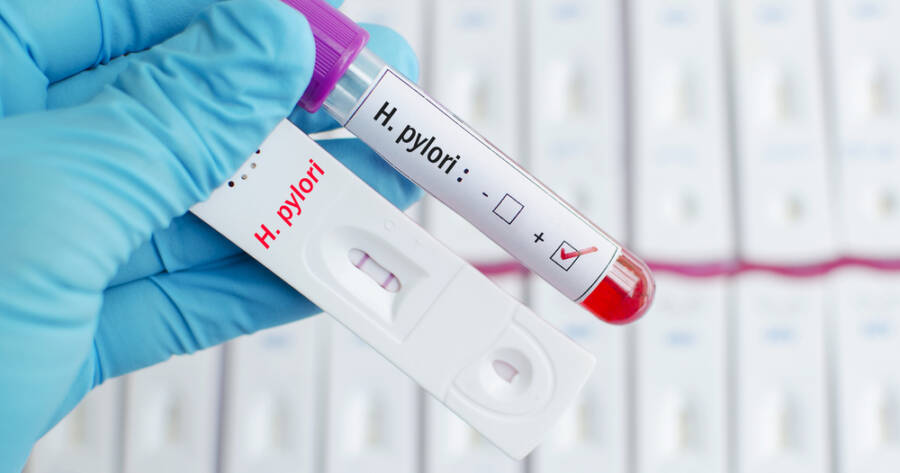H. pylori is a bacterial infection that is often unnoticed but can lead to a range of digestive problems. Fortunately, you can learn everything you need to know about H. pylori with a search online right now, which could help you spot early symptoms.
In this article, we will delve into the world of H. pylori, exploring its early warning signs, and the latest and most effective treatments. Knowledge is your best defense against this bacterial intruder, so let’s get started.
What is H. Pylori?
Helicobacter pylori, often referred to as H. pylori, is a type of bacteria that takes up residence in your stomach. This stealthy microbe can trigger the development of sores and inflammation in the lining of your stomach or the upper portion of your small intestine, known as the duodenum. In some instances, an H. pylori infection may even elevate the risk of stomach cancer.
Remarkably common, this bacterium is found in the bodies of approximately two-thirds of the global population, although most people live in peaceful coexistence with it, experiencing no noticeable symptoms. However, H. pylori is a leading cause of peptic ulcers, painful open sores that can emerge anywhere along your digestive tract. In exceedingly rare cases, this bacterium could potentially pave the way for the development of stomach cancer.
How Do You Get H. Pylori?
Contracting an H. pylori infection typically happens when these cunning bacteria infiltrate your stomach. Their mode of transmission primarily involves direct contact with bodily fluids like saliva, vomit, or stool from an infected individual.
Additionally, H. pylori can hitch a ride through tainted food or water sources. The precise mechanism by which H. pylori triggers gastritis or peptic ulcers in certain individuals remains somewhat of a medical enigma, as researchers continue to unravel its intricacies.
Early Warning Signs of H. Pylori
H. pylori infections often start silently, with no noticeable symptoms. However, as the bacteria affect the stomach lining, various warning signs may emerge. These can include persistent abdominal pain, bloating, or discomfort, particularly between meals and in the early morning. Individuals with these symptoms, especially if they persist, should consider seeking medical attention to rule out an H. pylori infection.
Most Common Symptoms of H. Pylori
If a person does experience symptoms, they can include redness and swelling (inflammation) in the stomach lining, a condition known as gastritis. Gastritis can lead to discomfort and a burning sensation in the abdomen, similar to hunger pangs. Additionally, individuals with H. pylori may develop sores or peptic ulcers in the stomach or the duodenum, the first part of the small intestine.
Ulcer-related symptoms may encompass persistent abdominal pain that occurs 2 to 3 hours after eating, intermittent pain that comes and goes, nighttime pain when the stomach is empty, or relief from eating or using antacids to reduce stomach acid. Other signs of ulcers may include unexplained weight loss, reduced appetite, bloating, frequent burping, upset stomach, nausea, and occasional vomiting.
How is H. Pylori Treated?
People without any symptoms often don’t require any treatment, but should follow their healthcare provider’s guidance and avoid using nonsteroidal anti-inflammatory drugs to avoid developing an ulcer. The standard treatment involves a combination of antibiotics, such as amoxicillin, clarithromycin, metronidazole, or tetracycline, along with a proton pump inhibitor like omeprazole, lansoprazole, or pantoprazole. This combination helps eradicate the bacteria and reduce stomach acid production, allowing the stomach lining to heal.
Newer medications like Talicia® offer a convenient single-capsule solution, combining antibiotics and a proton pump inhibitor for more effective treatment. It’s crucial to complete the entire course of antibiotics as prescribed to prevent antibiotic resistance.
Prevention Tips
Preventing H. pylori infection starts with good hygiene and safe food practices. Here are some tips to reduce your risk:
1. Handwashing: Regularly wash your hands with soap and water, especially before meals and after using the restroom.
2. Safe Food Handling: Ensure that food is properly cooked and stored. Avoid consuming raw or undercooked shellfish and street-vendor foods in areas with inadequate sanitation.
3. Avoid Close Contact: If you know someone with an H. pylori infection, try to minimize close contact, especially during their treatment period.
4. Maintain Clean Living Spaces: Keep your living areas clean and hygienic, as poor sanitation can contribute to the spread of the bacteria.
Learn More About H. Pylori Today!
H. pylori is a bacterial infection that affects millions of people worldwide, often with subtle or no symptoms. However, it can lead to significant digestive issues if left untreated. Recognizing the early warning signs and seeking timely medical attention is crucial. With the combination of antibiotics and proton pump inhibitors, H. pylori infections can be effectively treated.
Prevention through good hygiene and safe food practices is equally important. If you suspect an H. pylori infection or want to learn more, take the next step by searching online and consulting with a healthcare professional to protect your digestive health.
